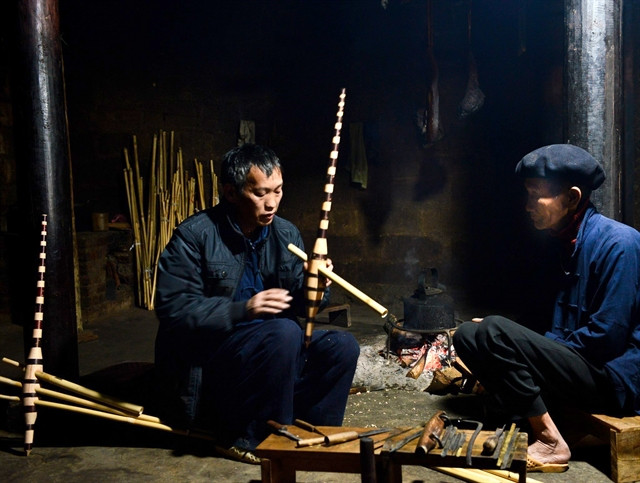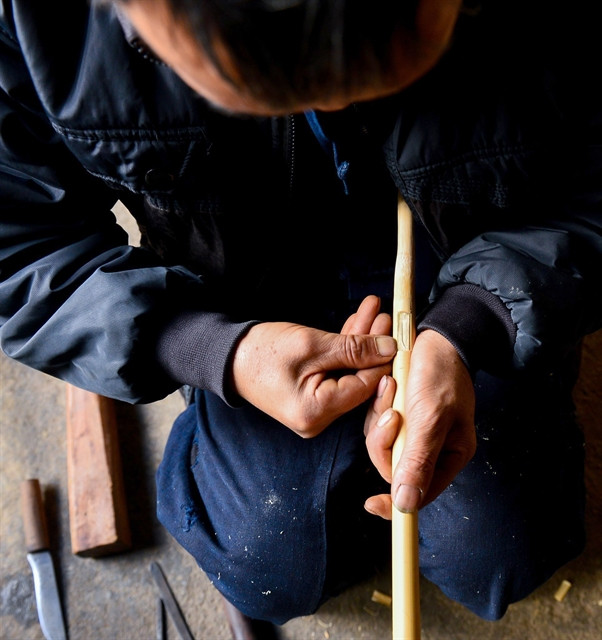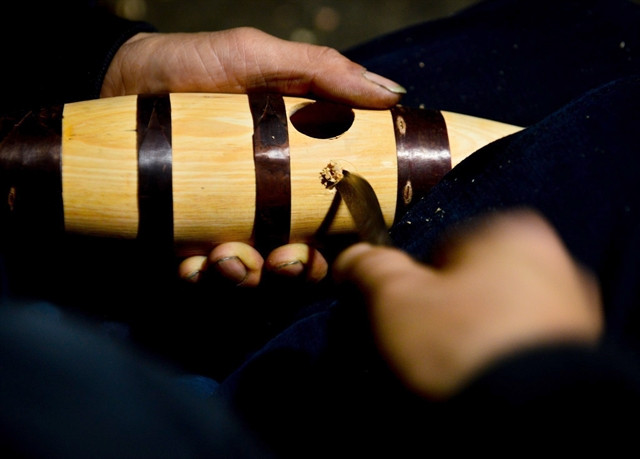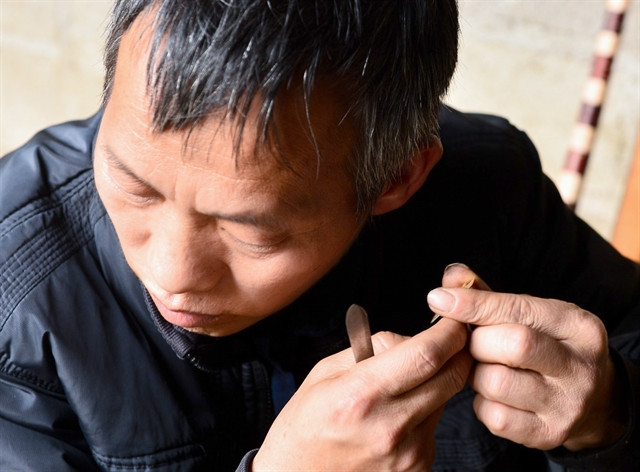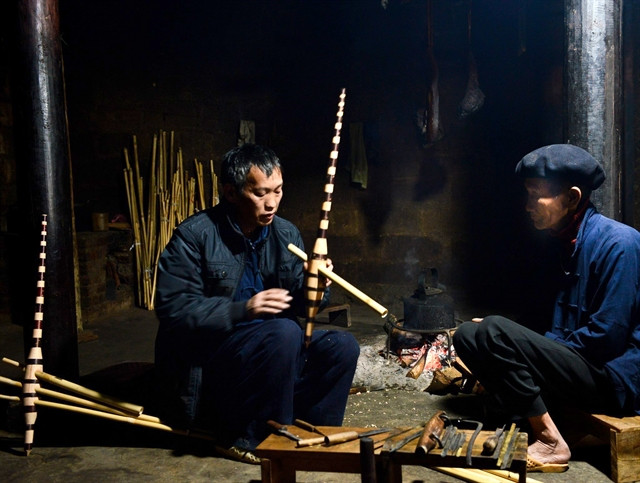
The Mông people make up the majority of the population on the Đồng Karst Plateau in Hà Giang Province. Khèn (panpipe), a traditional musical instrument indispensable to their daily life, creates a unique feature of the local culture.
The panpipe is distinguished by its shape, structure, and sound function. Its melodies are generated by both exhalation and inhalation.
Each panpipe has six bamboo tubes of different lengths and widths arranged closely together with one end connected to a gourd. The brass bar (the reed) is the only part made of metal.
Panpine gourds are usually made of pine wood.
There are no common standards for panpipe making, which requires ingenuity, patience and experience.
| Khèn is crafted by local artisans in Mèo Vạc District, Hà Giang Province. Panpine gourds are usually made of pine wood. |
| Shape, structure, and sound distinguish the panpipe. Exhalation and inhalation create melodies. |
| The Khèn is a traditional musical instrument vital to the cultural life of the Mông people. They have also retained the skill of creating trumpets as part of their culture's heritage. |
| Making Khèn requires careful attention to the sound intensity. The bright tones of this instrument are a highlight of Mông celebrations and rituals. |
At Mông festivals and New Year's festivities, young Mông men play Khèn and dance to showcase their physical prowess, emotional depth and intellectual acuity.
They begin early on in life to master the instrument. They frequently take a Khèn with them when they visit the terraced fields or the marketplace.
Celebrations aren't complete without the Khèn tunes that reverberate through the mountains and forests, carrying the hopes and dreams of the Mông people.
Villagers praise Mông men who are skilled Khèn players and dancers. The panpipe serves as a connection between the living and the deceased during funeral rituals. It is also a symbol of parental blessing at wedding celebrations. VNS
